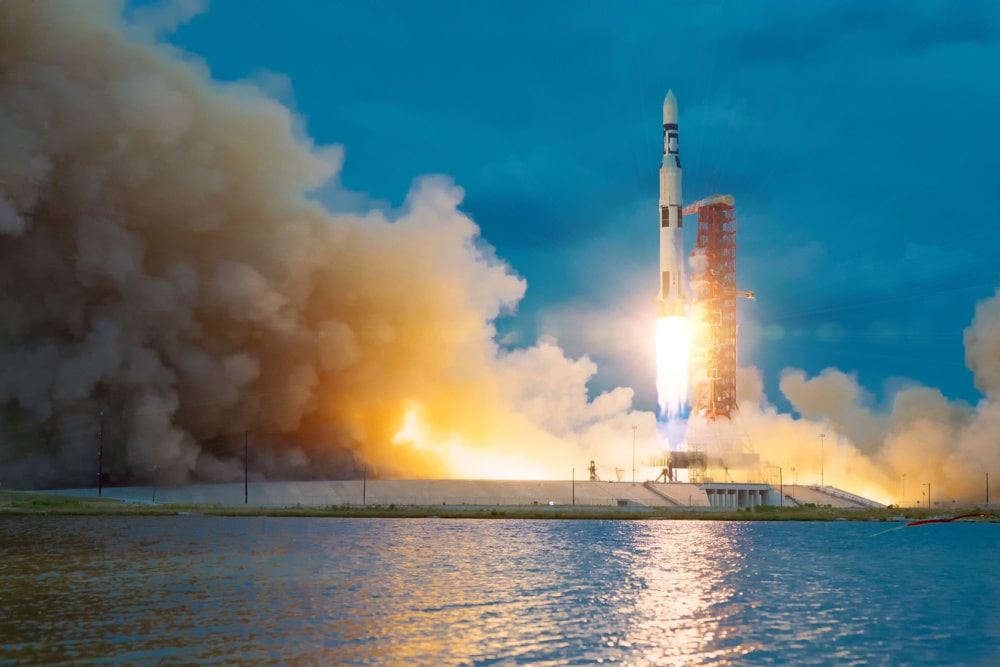
By Jim Turner, The News Service of Florida
TALLAHASSEE — Space Florida anticipates the need to add a large amount of wharf property around one of the world’s most-active cruise ports to help the expanding private space industry over the next half-century.
Florida’s aerospace agency envisions it must nearly double by 2033 the current footprint of about 2,800 linear feet of wharf space around Port Canaveral. The need would incrementally grow to an additional 9,135 linear feet by 2073, according to the agency’s “Florida Spaceport System Maritime Intermodal Transportation Study,” which was released last week.
The estimated price tag ranges from $42.2 million for the first phase to $2.1 billion for what is outlined as a seven-phase project. In part, the additional space would help with retrieval of boosters and capsules.
“There just simply isn’t enough wharf space at Port Canaveral to support maritime recovery, primarily, but (also) other growing parts of the space business there at the port,” Space Florida President and CEO Robert Long told members of the agency’s Board of Directors on Wednesday.
“So, figuring out how we go about actually implementing this is going to be, I think, the significant challenge in going forward,” Long added.
Along with the private space industry, the port region is vital to the cruise-ship industry, Cape Canaveral Space Force Station, Kennedy Space Center and the U.S. Coast Guard.
The report said current facilities are insufficient to meet projected demands. Among other things, it recommended raising money through federal grants and revised fees on leases and rent for use of existing shared facilities “without overburdening launch service providers.”
A Space Florida news release called the report “the preliminary steps” in enhancing maritime support for the growing commercial space industry. The agency must work with landowners, identify “strategic federal” funding sources, and conduct a study on how Florida’s other ports can support the industry, the release said.
“We look forward to continued collaboration with federal and state partners to realize solutions to ensure the industry’s continued success,” Canaveral Port Authority CEO John Murray said in a prepared statement included in the release.
The need for dock space has been a growing concern for space companies around Cape Canaveral, along with steps to streamline local regulations and an expanded pool of workers such as machinists and welders.
In November, Blue Origin Vice President of Government Relations Megan Mitchell outlined to legislators the need for expanded facilities to handle the company’s 322-foot-high reusable New Glenn rocket system.
“There is no other location that can support that massive vehicle recovery,” Mitchell told members of the state House Regulatory Reform & Economic Development Subcommittee.
“We look forward to growing further here,” Mitchell added. “But we recognize that possibly, in just a few years, we’re going to need additional support and infrastructure.”
Florida had a record 72 orbital rocket launches from the Kennedy Space Center and Cape Canaveral Space Force Station in 2023, up from 57 in 2022 and 31 in 2021.
There were 32 launches in the first four months of 2024.
The study projects 197 launches in 2028, 282 in 2033, 386 in 2043 and 1,252 in 2073. Those launches are expected to require a major increase in the need for retrievals.
Port Canaveral has listed among its goals and objectives an ability to “increase cargo handling capabilities and add capacity for more flexibility to accommodate diverse commodities and increased heavy lift and project cargo for expanding commercial space operations.”
Meanwhile, Port Canaveral and space-industry leaders continue to work on reducing interruptions in launches and cruise operations related to launches that require exclusion zones where no marine traffic is permitted.
Port Canaveral handled 6.92 million cruise passengers in 2023, globally behind only PortMiami with 7.3 million cruise passengers.
Last June, the Federal Aviation Administration announced it had reduced the amount of airspace being closed during space launches to limit the impact on commercial aviation across Central Florida.



